Spike Lee Says Jonathan Majors 'Has the Goods'
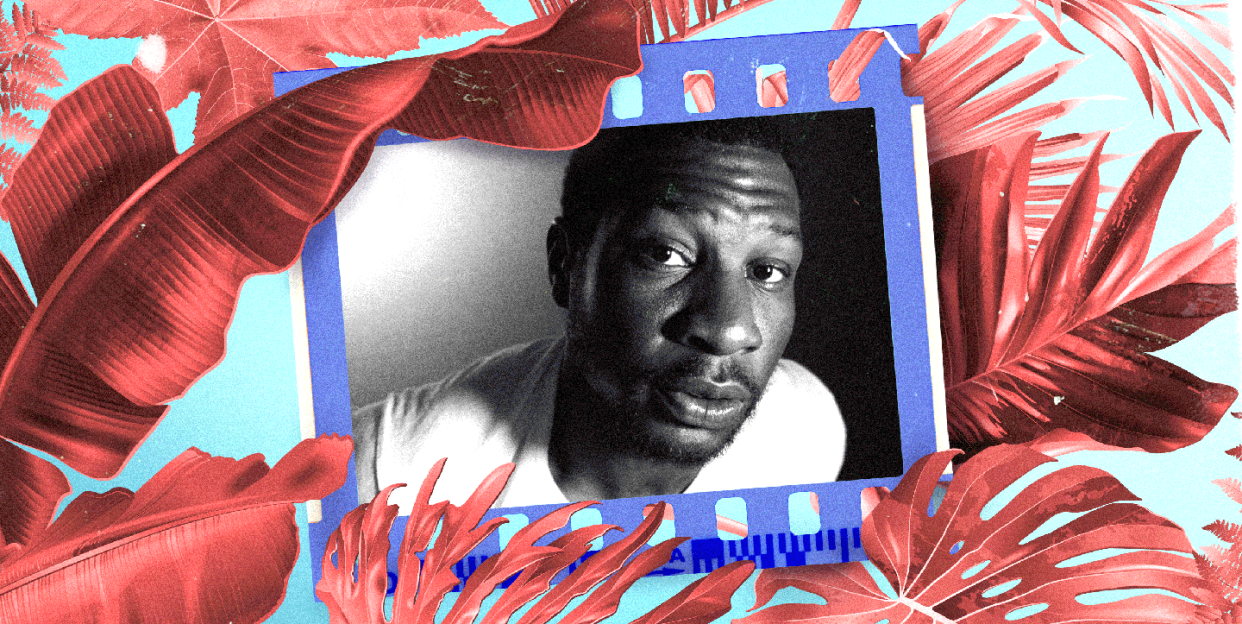
WHEN JOHNATHAN Majors was in drama school at Yale, he and his classmates would sometimes sit around in a circle and just look at one another. The point, in theory, was to find complete openness—if anyone was feeling anything, they needed to say it out loud. They needed to express it through their body.
For Majors, who is now 30, that feels like a long time ago. It was shortly after he discovered that acting could help him channel the rage that got him involved in fights, brawls, and running with a bad crowd as a kid around Dallas. But well before he ever imagined what 2020 might look like, with him starring in a troika of hugely hyped film and TV projects backed by entertainment heavyweights like Spike Lee, Jordan Peele, and Jay-Z.
Lee's Da 5 Bloods is now streaming on Netflix and marks Majors' largest role to date after a critically-acclaimed supporting actor performance in the 2019 indie hit The Last Black Man in San Francisco and several years of smaller roles alongside the likes of Christian Bale (in the 2017 western Hostiles) and Matthew McConaughey (in the 2018 crime drama White Boy Rick). It arrives as our country faces a reckoning about widespread, institutionalized racism toward Black people, and Majors has a lot to say about that.
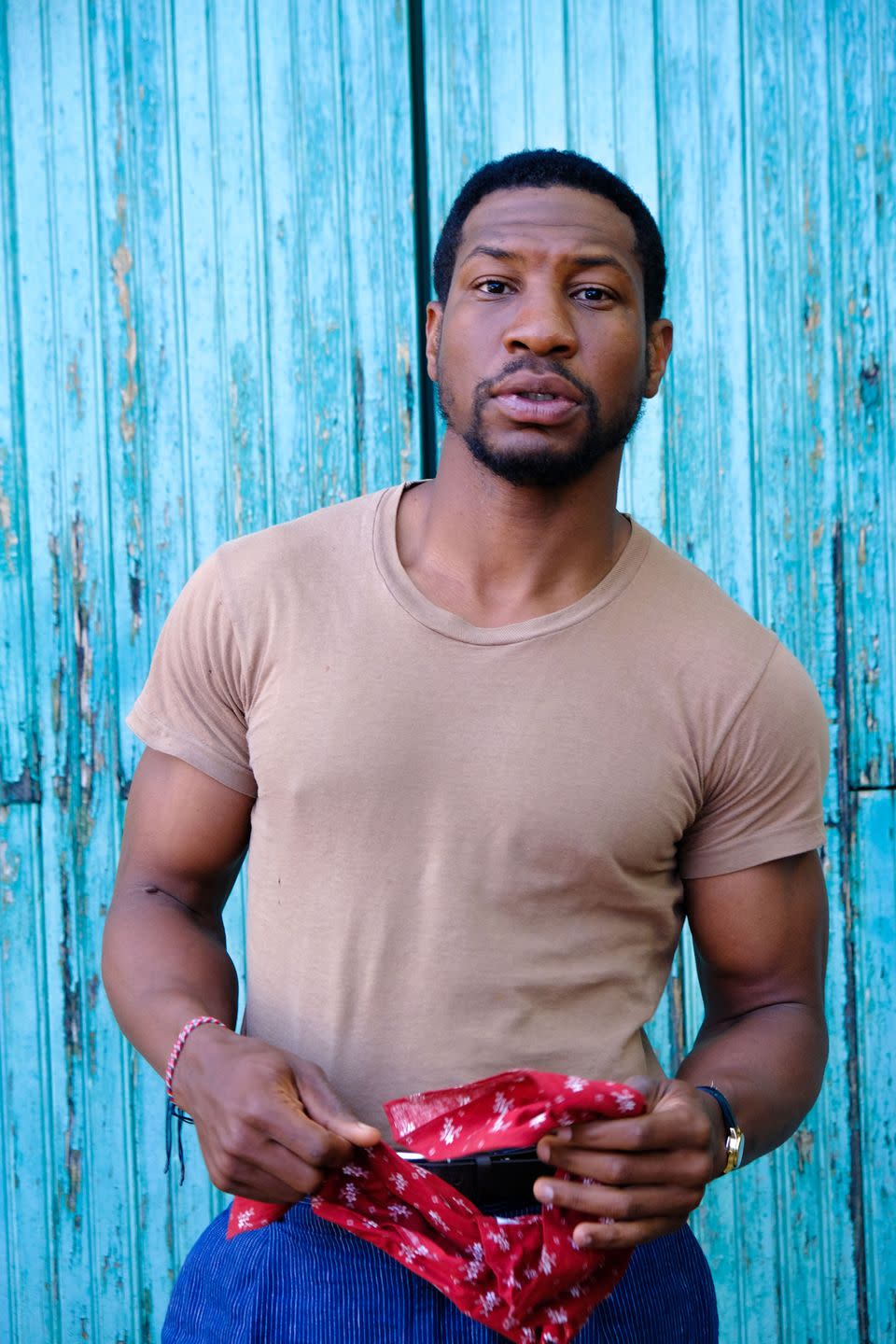
When we talk on the phone, it’s early June, a little more than a week after a white Minneapolis police officer named Derek Chauvin killed a handcuffed Black man named George Floyd by kneeling on his neck for eight minutes and 46 seconds—ignoring numerous pleas for help from both Floyd and the people surrounding him.
Majors tells me that the trust-circle exercise is the only thing he can think of. He has something to say out loud. “I’m heartbroken, and I’m angry,” he says. “And I feel a deep rage pulsing through me. It’s always been there—I mean, being a young Black man from Texas, that rage is in me.”
He’s also found a way to express the heartbreak and anger through his body. Majors is currently living in Santa Fe, where production of his latest film has stalled due to the COVID-19 pandemic, so he’s been attending protests in the city’s central Plaza area. “We stood out, and disrupted when things needed to be disrupted, and tried to get the message across that it all stops now. It all changes now.
“I want to be clear, though, because I view rage as a frequency. Not necessarily, or solely, as an emotion,” he says as he continues what will become an uninterrupted and spontaneous monologue spanning close to six minutes. Speaking calmly but directly, he explains that his senses all feel completely turned up. “I have a very high frequency of anger, and a very high frequency of sadness.”
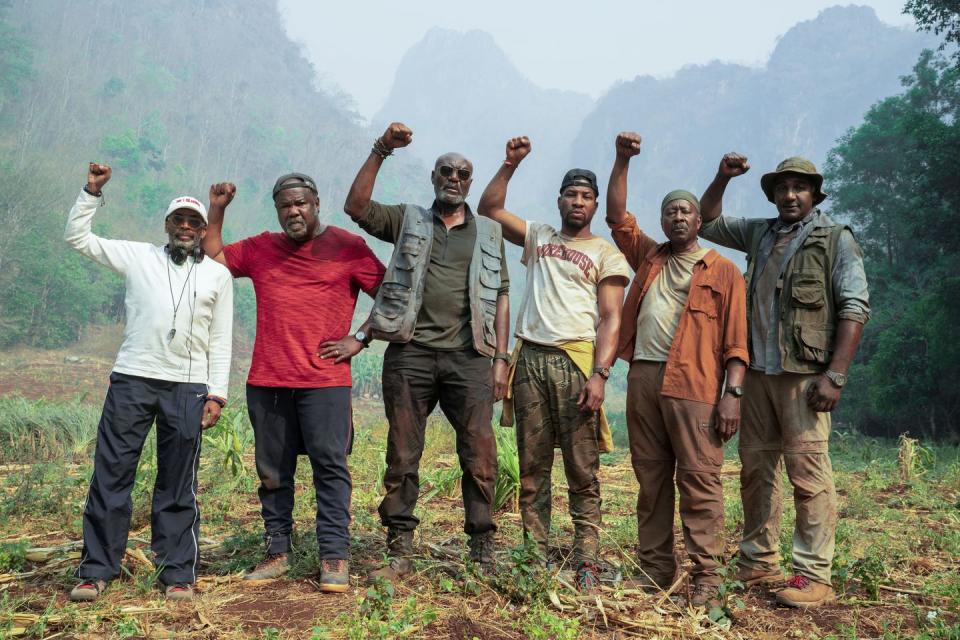
He goes on: “I also feel deeply militant in a way. I view that as...I’m a soldier. We’re all foot soldiers, and my weapon of choice is art. In war, the first thing that goes, when you try to take over culture, is the statues. I think we all can recall statues with their heads cut off in museums. Things that still these days we see at our current museums. And that is because a culture took over a culture, and they defaced it. They got rid of it, because once you remove a person’s culture, once you remove a person’s art, those people no longer know where they come from.”
At this moment, each and every role he has taken in his young career feels like it has more resonance. “So I feel now very much like a guardian. I’m standing in front of art. I’m standing in front of cinema. I’m standing in front of Black culture. I’m standing in front of the history of America, and I’m protecting it by making art, by protecting our art, and by promoting our art.”
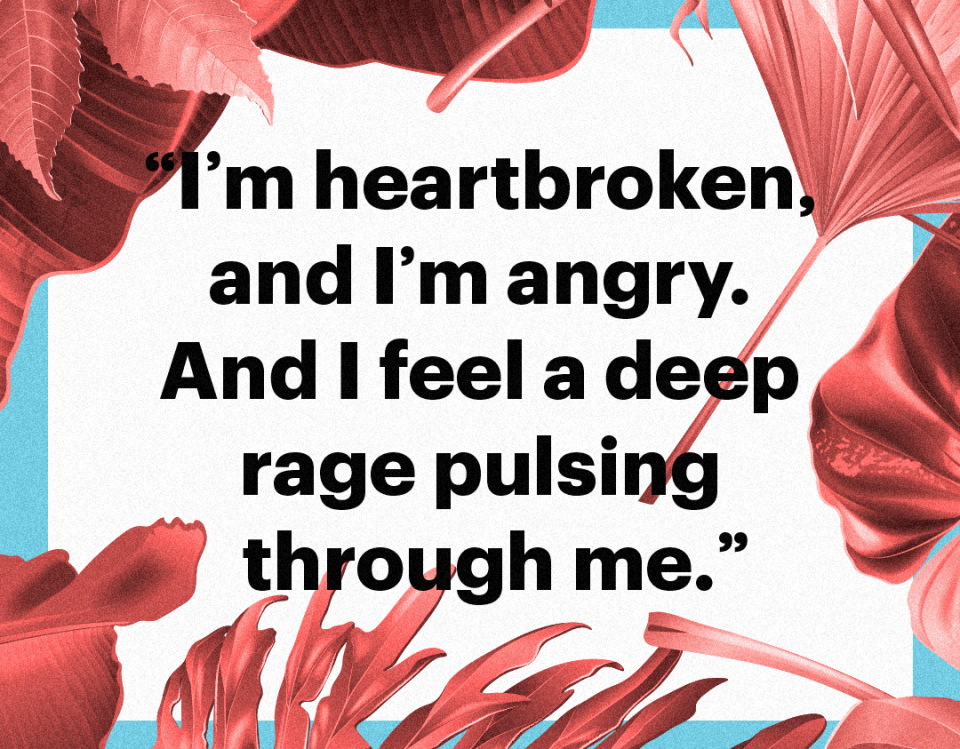
There is more—so much more—but before we get there, let’s rewind a bit. To be clear, this is not how Jonathan Majors expected this story to go. In late May, I’d called him for a lighthearted conversation about Da 5 Bloods ahead of its June 12th debut. The movie is about four Black retired Vietnam veterans who journey back to the war zone where they fought to find the body of their fallen fifth brother (played in flashbacks by Chadwick Boseman). Majors plays David, the son of one of the more unhinged veterans, who joins them as it’s clear the quest has more than one objective. The movie is part war epic, part treasure hunt, and, as with every Spike Lee movie, a strong social commentary.
In our early conversation, we focused on what it felt like to be on the cusp of becoming a breakout star. After George Floyd’s death and the national upheaval that’s helped highlight other instances of racial injustice and police brutality, Majors felt compelled to get back on the phone and share more, in hopes of continuing a far bigger and more important discussion.
IN DA 5 BLOODS, Majors's co-stars include Delroy Lindo, Clarke Peters, Isiah Whitlock Jr., and Norm Lewis, all of whom have worked with Lee before. With each performance, he tries to give everyone he works with the chance to illuminate the diversity and power and individualism and value of yet another Black life that matters.
“Because once people can see what’s going on, that’s the issue—we’re blind,” he adds as his exercise in extreme honesty continues. “The patriarchy is blind. They have no idea what a Black life is. If they did—and I really do believe this—if those cops knew what that man’s life was, they would not have killed him.”
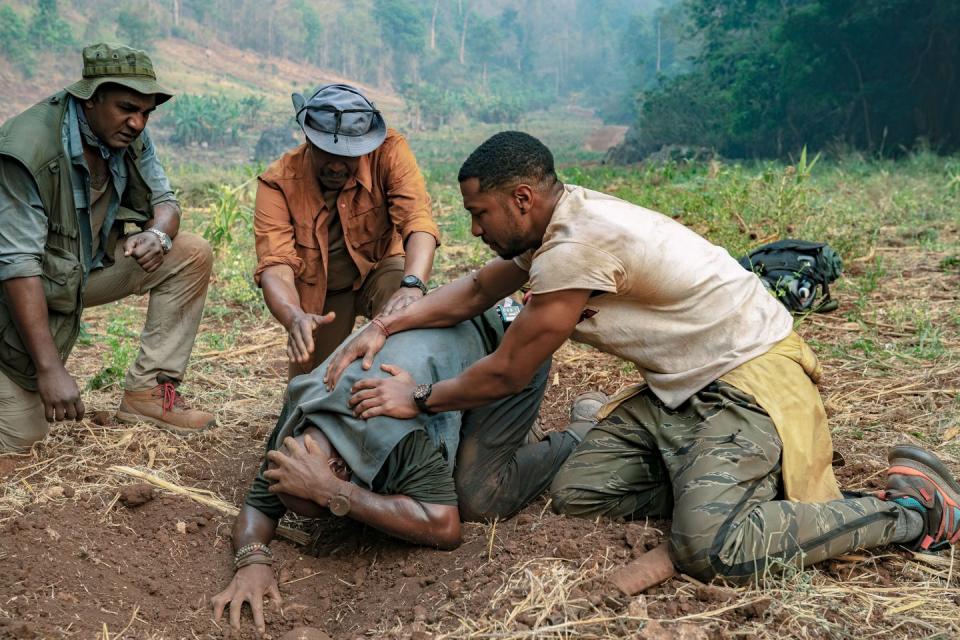
Majors’s own life started in Lompoc, California, but he refers to himself as a “country, ghetto boy from Texas,” having moved to Dallas when he was five years old. As with his character in Da 5 Bloods, his own father also served—albeit as an Air Force member in Desert Storm, not Vietnam.
“There’s a certain mentality that military brats have, you know? Especially if you’re a male, and your father’s the one in the forces,” he says. As a kid, Majors remembers feeling isolated and that his dad seemed distant. His father left the family shortly after they arrived in Dallas. “His sudden absence had a real wear and tear,” he once told Vanity Fair.

When David shows up in Da 5 Bloods, that’s exactly what he’s doing—seeking a way to bring himself closer to a father who’s continually distanced himself. “David is all about his father’s love, and as we grow up we find different ways to do that,” he says. “And being a Black man, and being isolated from my father, there’s ways to get close to him.”
Majors’s mother was a pastor and his sister was a star student, but he travelled a different path. After a brawl with a classmate and a teacher, he was removed from public school and placed into an alternative education program that he has in the past referred to as a boot camp of sorts. Majors ended up being cast in a production of Romeo & Juliet, which led to a fascination with the arts, then North Carolina School of the Arts, and eventually Yale’s M.F.A. program.
Even before he graduated from Yale in 2016, he landed his first major gig: a regular role on ABC’s 2017 four-part docudrama When We Rise. The series recounts the gay rights movement in the U.S. starting with the 1969 Stonewall riots. In flashbacks, Majors portrayed the young version of Ken Jones, a gay former sailor trying to racially integrate the Navy upon his return from Vietnam.
That TV work led to movies like Hostiles (as an Army corporal during the Indian War) and White Boy Rick (as an illegal gun-buying gangster). By 2019, he'd gained industry praise for A24’s The Last Black Man in San Francisco, a story exploring the impact of gentrification on displaced residents. He plays Montgomery, the best friend of a man who is unraveling as he tries to find a way to reclaim the majestic home once owned by his grandfather. You could say Majors steals every scene he’s in, but he’s on-screen for most of the movie, and earned Independent Spirit and Gotham Award nominations for Best Supporting Actor (and garnered some fan complaints that he was overlooked as an Oscar contender).
What’s stood out to the people working with him is just how passionately he commits to each role. When filming Da 5 Bloods in Vietnam, Majors ran every single day. But this wasn’t just running on a treadmill or running around a trail or even running outside his trailer. Rather than allow himself to be driven to set, he’d find his own way on foot through the steep hills of the hot and humid Vietnam jungle.
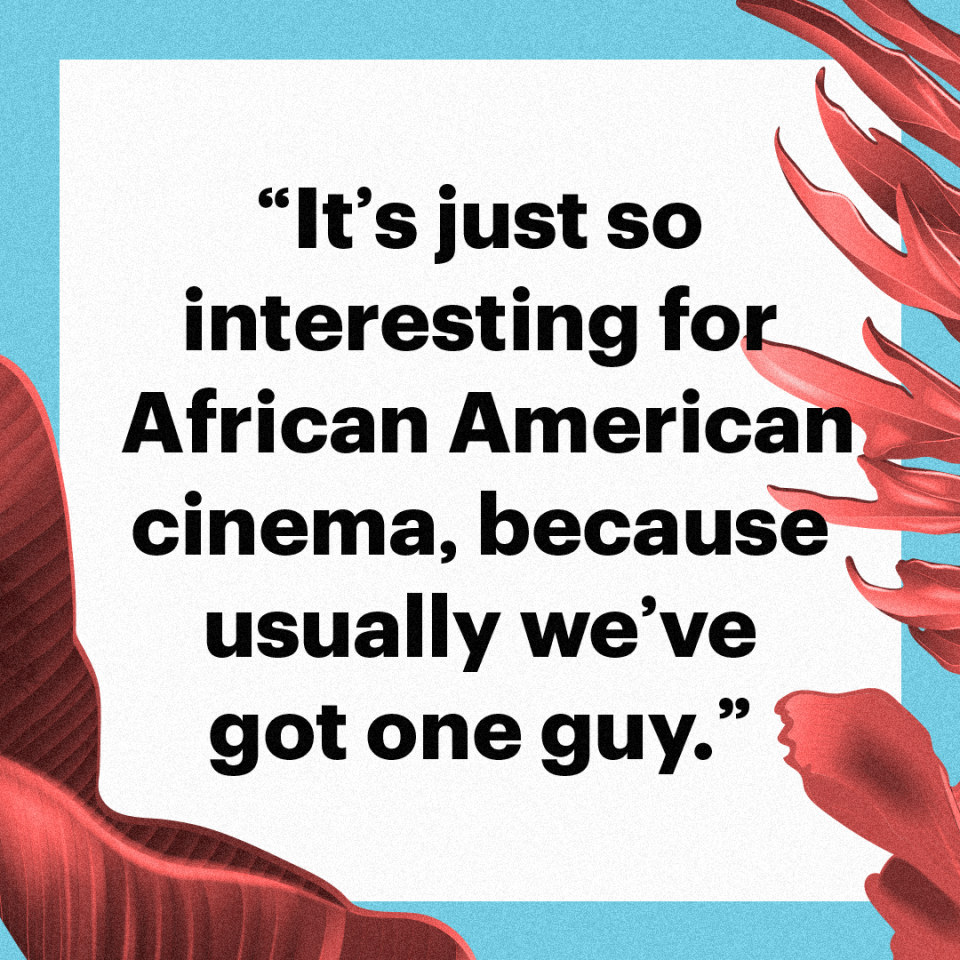
For Majors, the rationale seemed simple: The script implies that his character, David, is a runner from Morehouse, a prestigious Historically Black College that Lee himself attended. So Majors thought, why not just lean into that? “It got your blood going,” he says. “And the world is so visceral, and we’re sweating the entire time, so instead of getting hit with the water bottle [for sweat effect], I got my own water bottle naturally, and got my sweat up that way.”
Spike Lee sort of couldn’t believe it. “I didn’t tell him to do it!” he says, his voice popping with energy when we talked about Majors’s on-set behavior. “I never asked why he did it. That was his thing! Actors have their things, so I’m not gonna get in the way.”
In Hollywood, Lee is known as a man who has helped launch some of the biggest stars’ careers. That includes an early Denzel Washington role in Mo’ Better Blues, one of Anthony Mackie’s very first parts in She Hate Me, and the prodigal John David Washington in BlacKkKlansman. His unprompted assessment of Majors’s own talent is traditionally curt: “He’s on the brink of major stardom,” he says. “He has the goods.”
THE NEXT CHARACTER America will see Majors embody is Atticus Freeman, the lead in HBO’s upcoming series Lovecraft Country, produced by Jordan Peele and J. J. Abrams. It’s an adaptation of Matt Ruff’s 2016 genre-bending novel of the same name, focused on a Korean War veteran and lover of sci-fi books living in the Jim Crow south—and that’s before the story brings mysticism, darkness, and monsters into the fold.

Ruff's book was inspired by the work of H.P. Lovecraft, another famous fantasy writer, whose stories were also clearly racist. The HBO show's Lovecraft title is a nod to that original material, as Majors and co-stars Courtney B. Vance, Jurnee Smollett-Bell, and Michael K. Williams will encounter both supernatural monsters and racism.
“Our hero is a young Black man from the south side of Chicago—and he’s not wearing a cape,” Majors says with pride. “We don’t see that. Our monsters, our villains, are both human and otherwise.”
Turns out Peele and Abrams got interested in Majors about the same time Spike Lee did. Majors got a call about the role while shooting The Last Black Man in San Francisco and read the 372-page source book in just four days. He was also shooting another film called Gully (which hasn’t yet been slated for release and is about people surviving a Purge-esque anarchistic riot), so he kept the Lovecraft audiobook on loop as he flew back and forth between sets in Los Angeles and San Francisco.
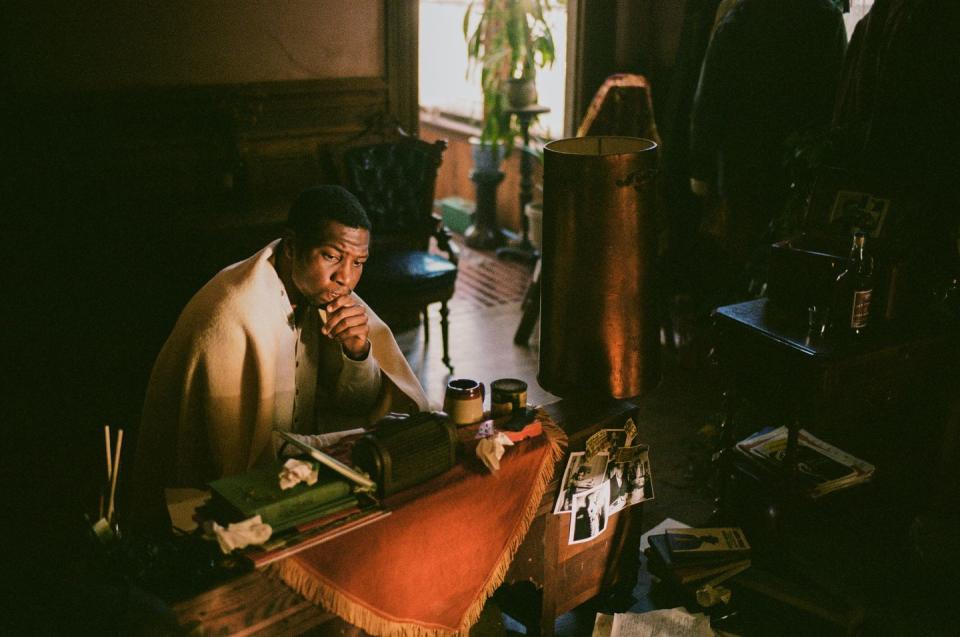
Lovecraft Country showrunner Misha Green says that Majors was picked because of his ability to play a character with distinct and seemingly oppositional personality traits—one part sci-fi geek, another disciplined soldier. About halfway through production on Lovecraft, she said, she watched The Last Black Man in San Francisco for the first time and was stunned by the complete lack of overlap between Monty, his character in that film, and Atticus in Lovecraft.
“Jonathan is able to unearth the small things that make up a person, the things you would only notice about someone you’re deeply in love with, and he’s able to bring those details into his performance, thus making you forget it’s a performance,” she says without giving away too much detail, as much of the project is kept under wraps.
Preparing for Lovecraft also meant physically changing his body. The lean sprinter physique that Majors developed for Da 5 Bloods has since gotten even leaner to resemble a haunted yet resilient veteran. “When you have a little less weight, you behave differently, you move through the world differently,” Majors says. He subscribed to the Military Fit Plus workouts on Darebee, a digital training platform, and got shredded.
But that wasn’t his only physical transformation during Lovecraft. One episode of the show—the last one filmed when it was in production—is a flashback episode set during the Korean War, five years prior to the main thread of events to the series. Green had seen enough of Majors to that point to know exactly what to expect from him. “I was not surprised when Jonathan showed up to shoot physically smaller and with different mannerisms to reflect Atticus’s different mindset during wartime,” she says, again without sharing too much.
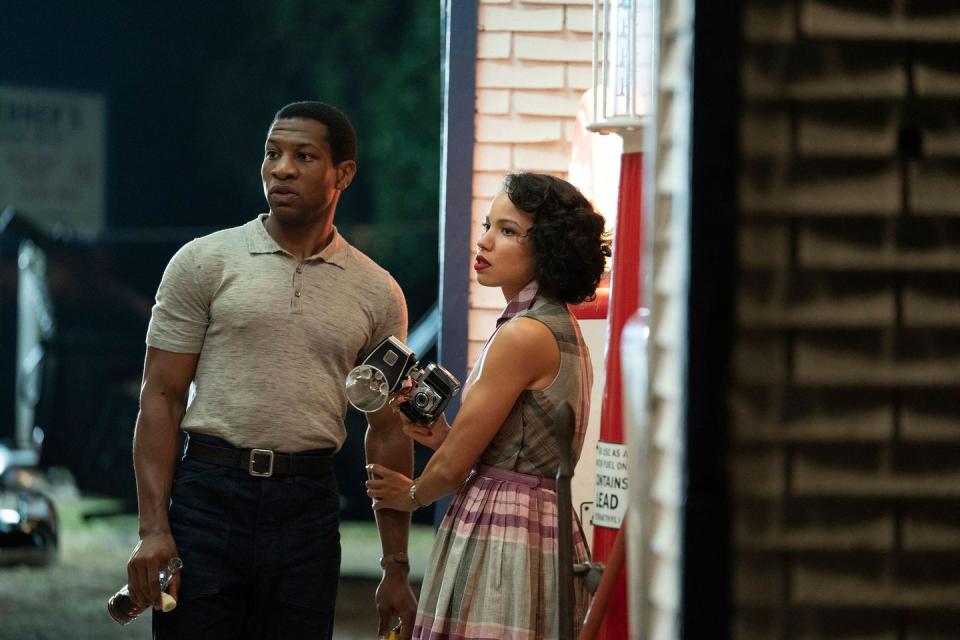
Like Lee, Green sees Majors’s unrelenting potential. “I can’t wait for everyone to see the work he’s done in Lovecraft Country,” Green says. “It’s his first starring role, but it definitely won’t be his last.”
The show debuts in August, and Majors says he truly believes it will offer something for everyone, bringing a period piece, a civil-rights story, and a sci-fi tale together to create what might just be an entirely new genre. “If you’re a bibliophile and you read a lot of books, you’re going to love it. If you love action, you’re going to love it. If you love civil-rights pieces, Black art, you’re going to love it,” he says.
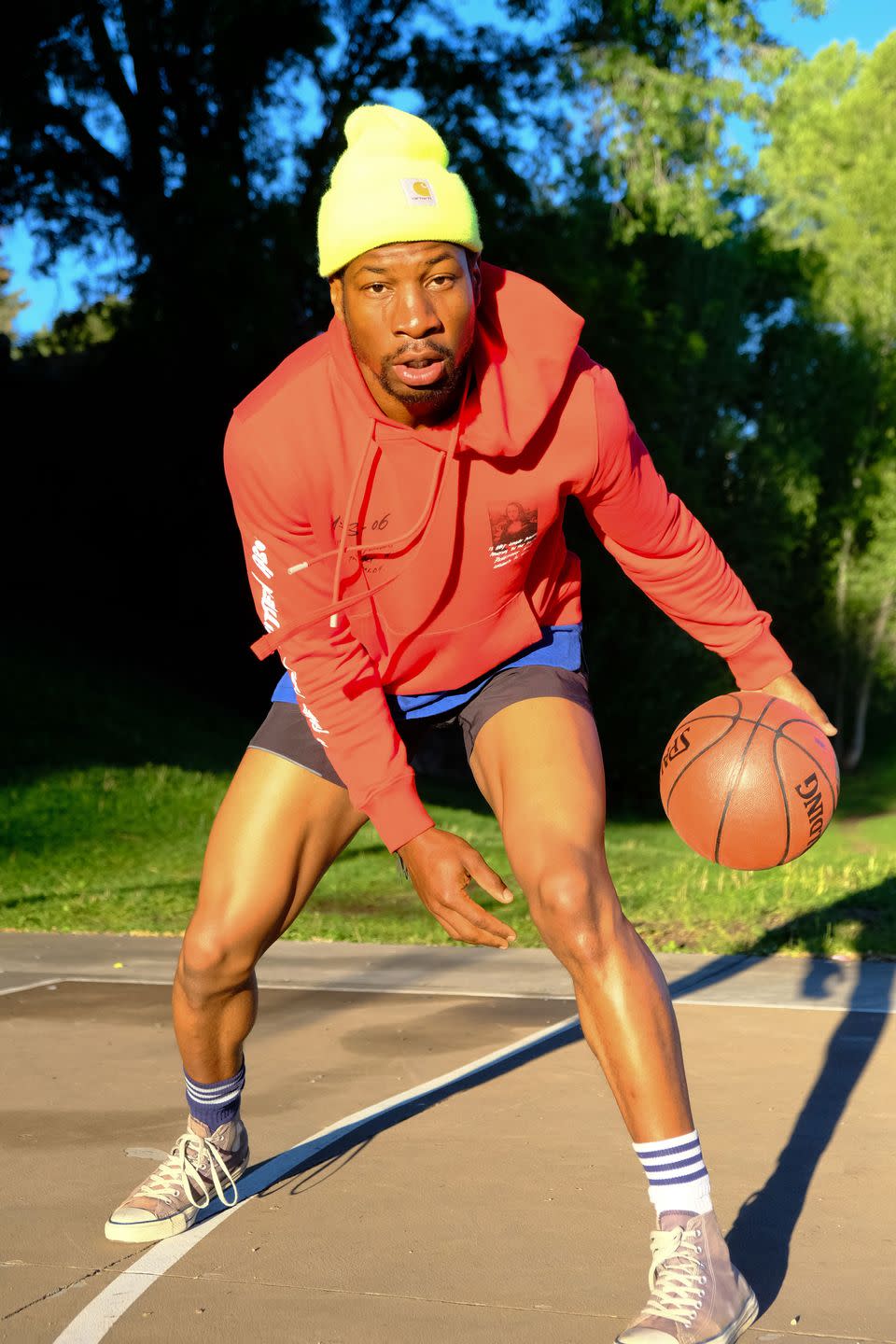
But he’s already carefully chosen a follow-up. After Lovecraft comes The Harder They Fall, a Jay-Z-produced Western with a $90 million budget in production at Netflix that also stars Idris Elba and features Regina King (in her first movie role since winning the Oscar for If Beale Street Could Talk), Wesley Snipes, and Zazie Beetz. Its predominantly Black cast marks a continuing paradigm shift that was mainstreamed with 2018’s Black Panther.
“It’s just so interesting for African-American cinema, because usually we’ve got one guy,” he says. “We’re watching Will Smith. We’re watching Denzel Washington. We’re watching Snipes, by himself [in] Blade.”
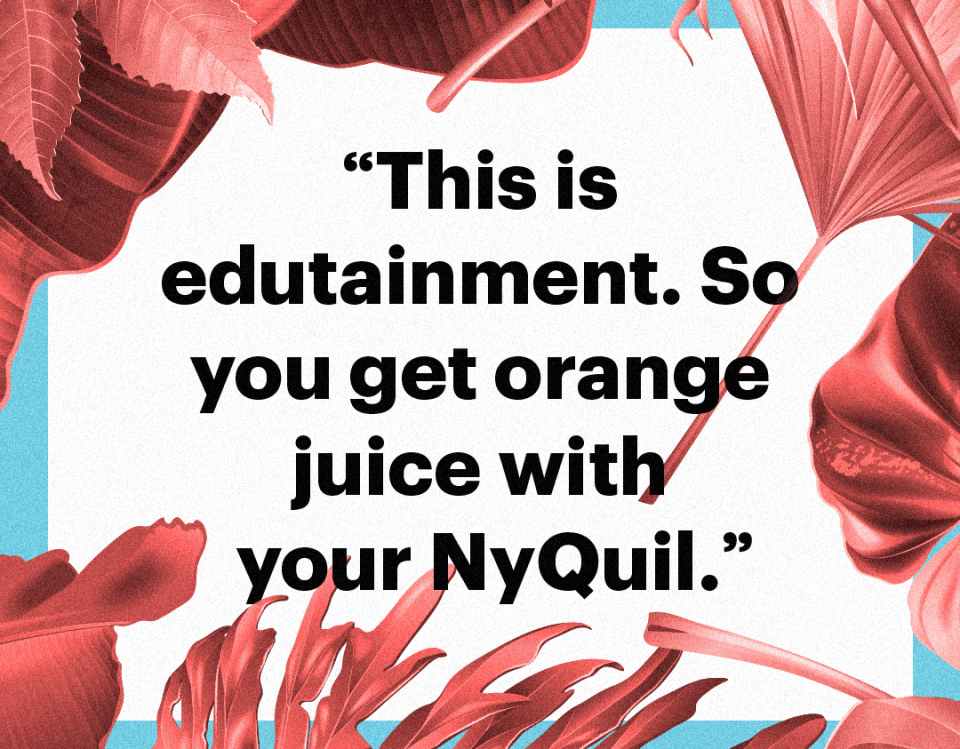
Majors says director Jeymes Samuel (a Jay-Z associate who directed his 2017 “Legacy” video) has repeatedly called this movie not the Old West but the New West—one recast to be more inclusive.
Still, Majors seems to be preparing for genre purists to question the legitimacy of a different take on the long-storied genre. “Yes, it’s a Western,” he says, “110%. I’ve done all my research. I’ve watched all the Magnificents, I’ve watched Lonesome Dove. I’ve done my research on that. But the things we’re doing with the gun work and with the horse riding and with all these other elements that make up the Western, and then we’re heightening them and expanding them and really showing it through this prism.”
AS MAJORS continues his exercise in radical openness during our call, he hits on essentially every subject of the moment. From the long game still required to make true change (“They want you to get tired, they want you to quit. You won’t. We won’t”). To naysayers who complain about looting (“Property is not human life. Don’t come yelling at me about tearing up your shit when you’re taking people’s lives. These things are not equal”). To Donald Trump's staged photo-op with a Bible outside of St. John’s Episcopal Church (“I dare the president to have more creativity. I dare the president to be more vulnerable”).
Eventually, he makes his way back to his own experience of the preceding week, and an image that struck him when he made his way out to the protests at the Plaza in Santa Fe.

“I’m looking at a kid, and I’m looking at him, and he’s got to be 20 years old—I’m ten years older than this guy. And here we are,” he says. “I hoped that was stuff that he wouldn’t have experienced. I’m ten years older than him, which made me then think about my daughter. Who’s...not 20. She’s seven years old. And I’m thinking, Man, I really hope and pray that he someday is not standing next to my daughter, looking at her, and being like ‘Damn. I hoped better for you.’ ”
It’s a hypercharged moment to be premiering any film, but especially one by a director who is among the most subversive in cinema. Never mind that a pandemic has made sure that people will be at home and likely tuning in en masse to this project, and his next one, and the one after.
“We don’t need to yell about it, we don’t need to get on a soapbox about it,” he says about whether the audience will embrace some of the obviously complex and unequal realities that still exist and helped shape the film. “Essentially, here it is. That’s the opportunity we are giving to people who are ignorant, in some cases, and also to people who are Spike Lee fans, and want to be entertained and see a dope-ass movie.”
But he still has more to share. “This is edutainment in the highest form,” he says. “It’s highly sophisticated art. It’s highly sophisticated discourse, and it speaks to politics without being political. So you get orange juice with your Nyquil. You get some medicine and you get some sweet.”
Jonathan Majors has found many ways to invite you into his circle. The question is if you will listen and watch openly—and then what will you do next?
You Might Also Like

